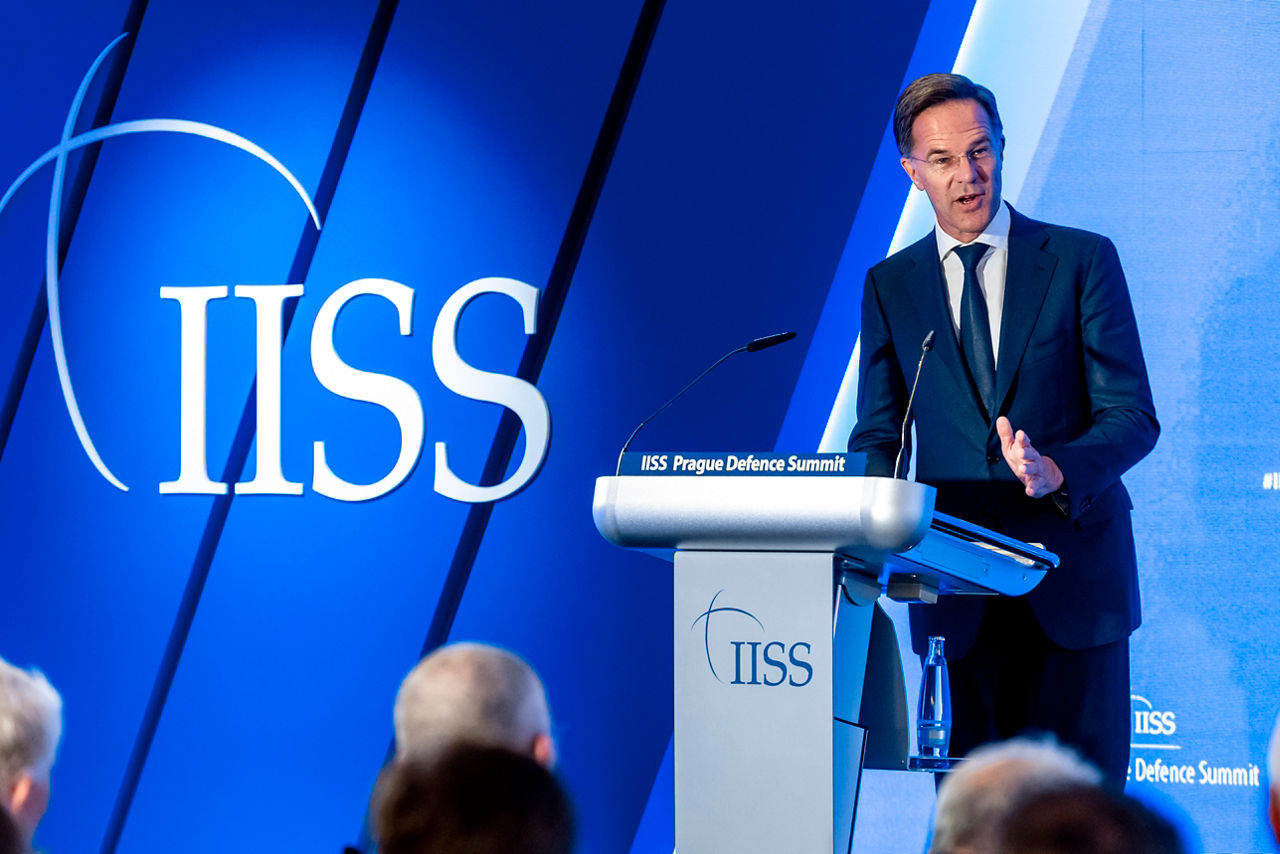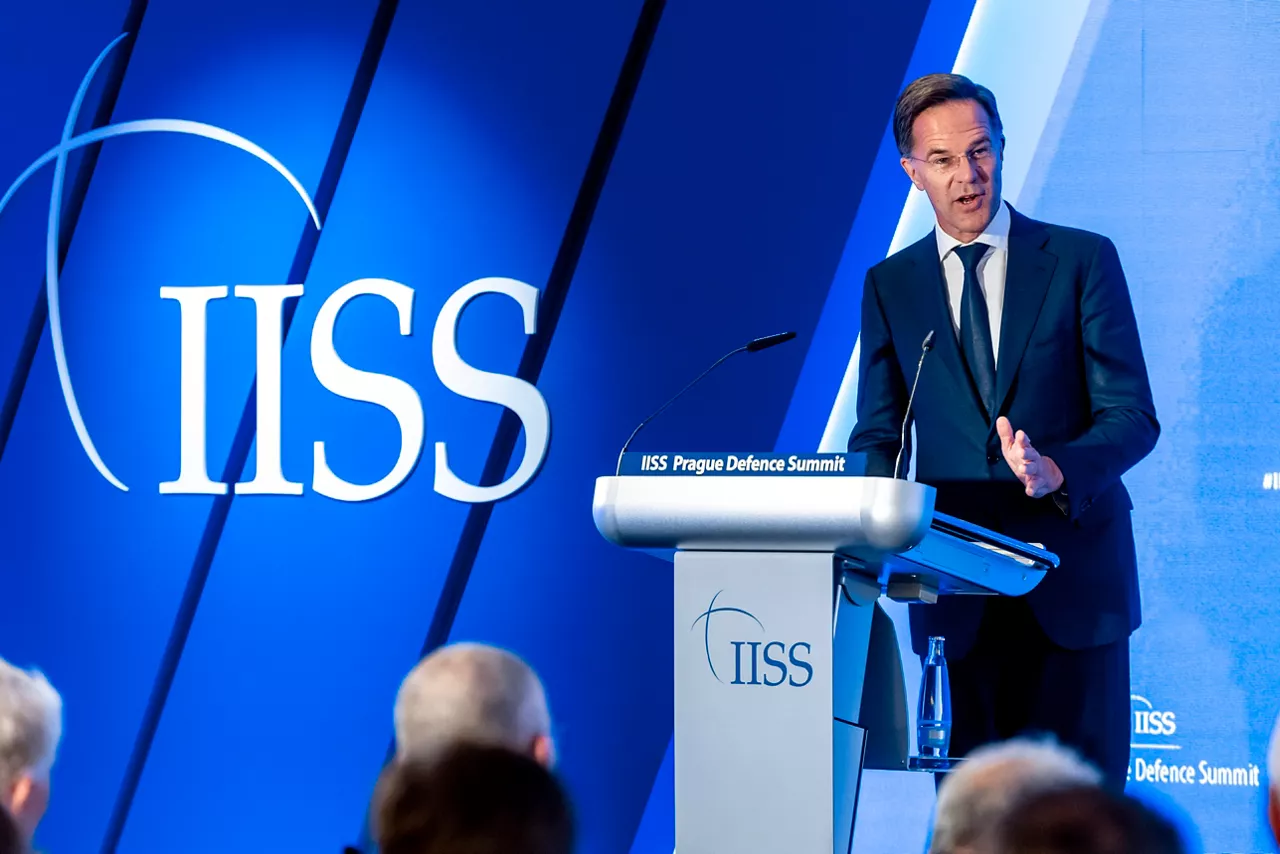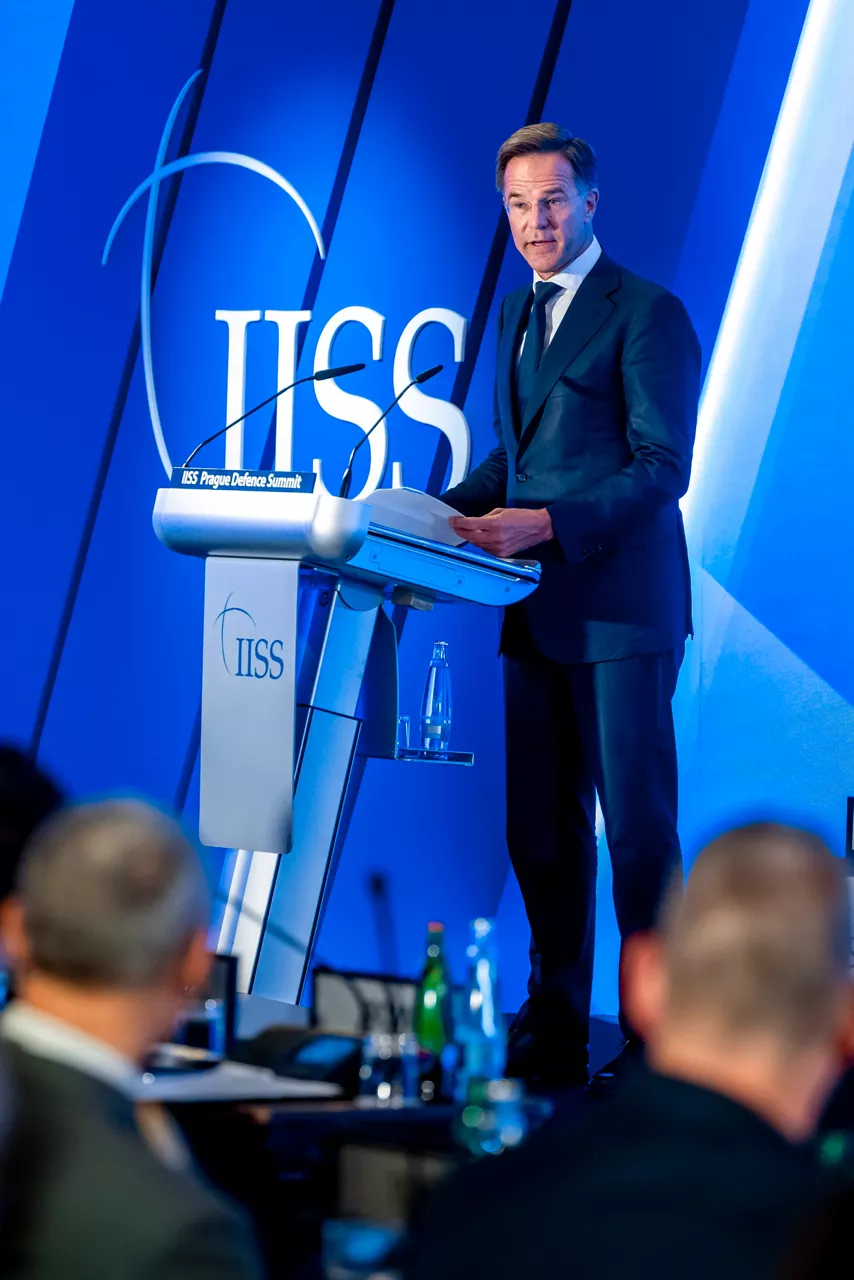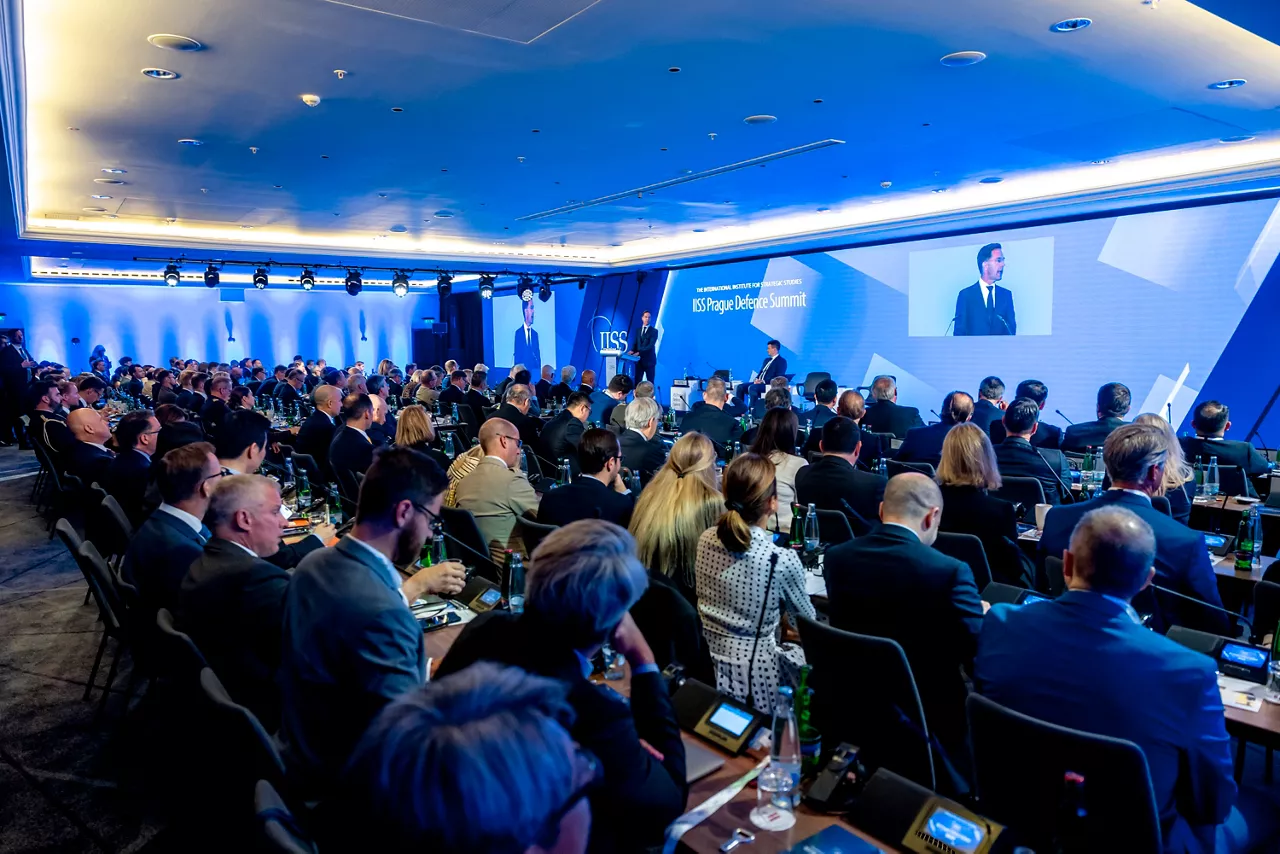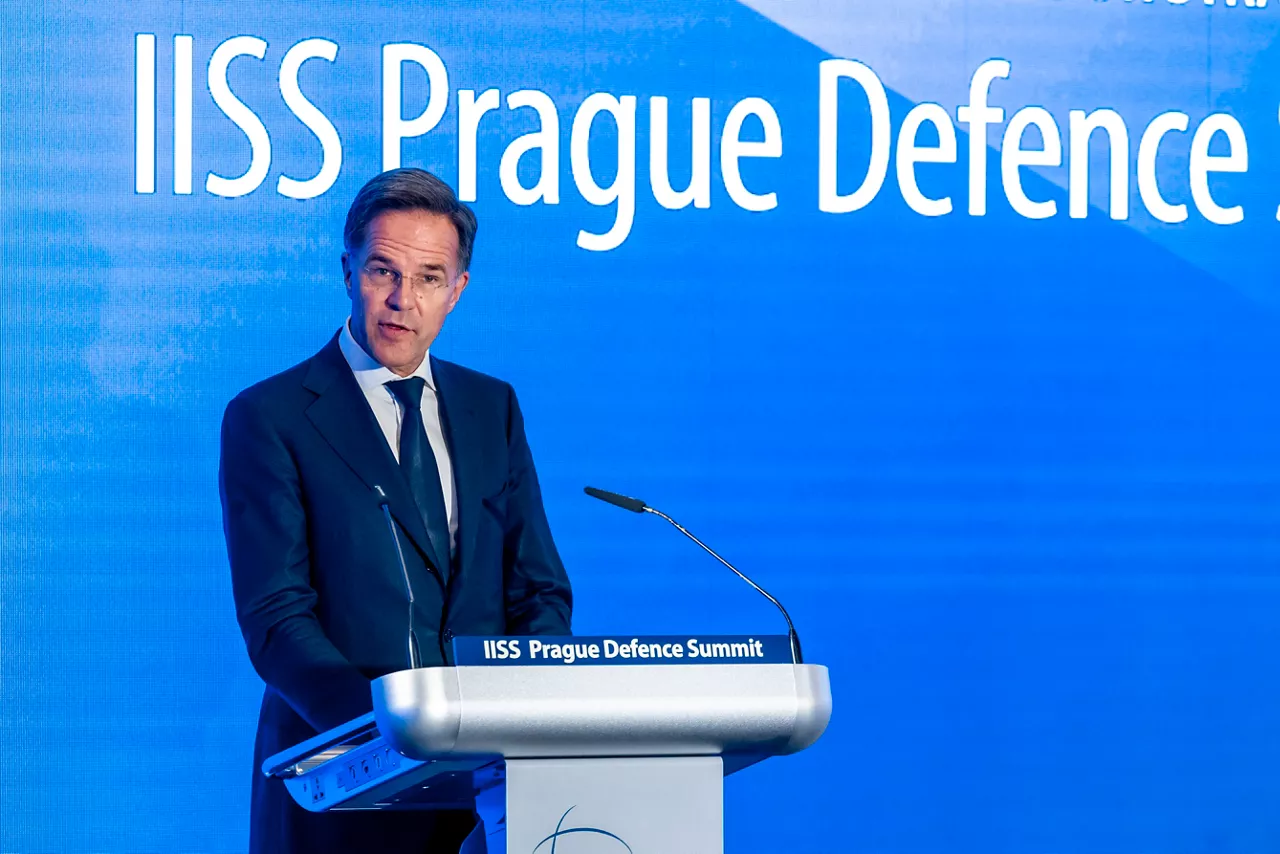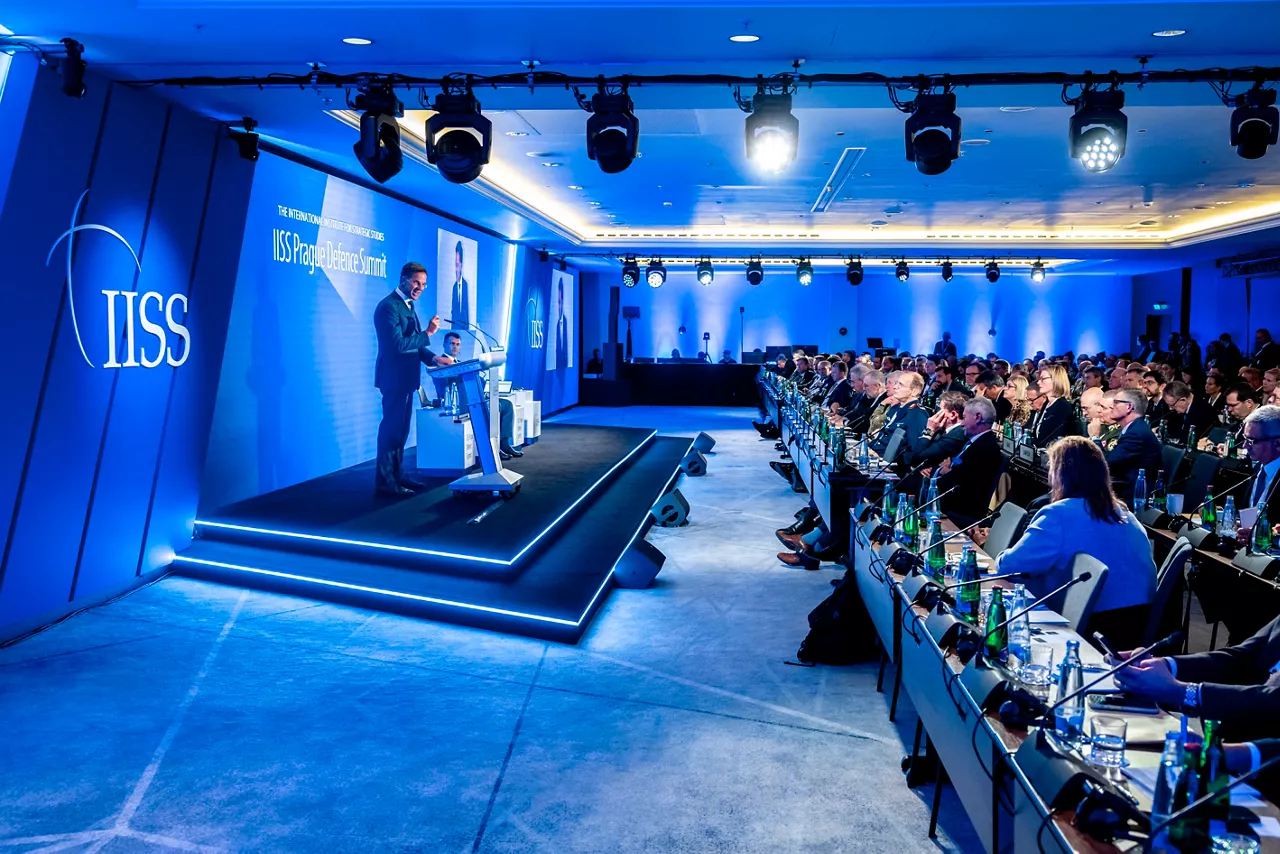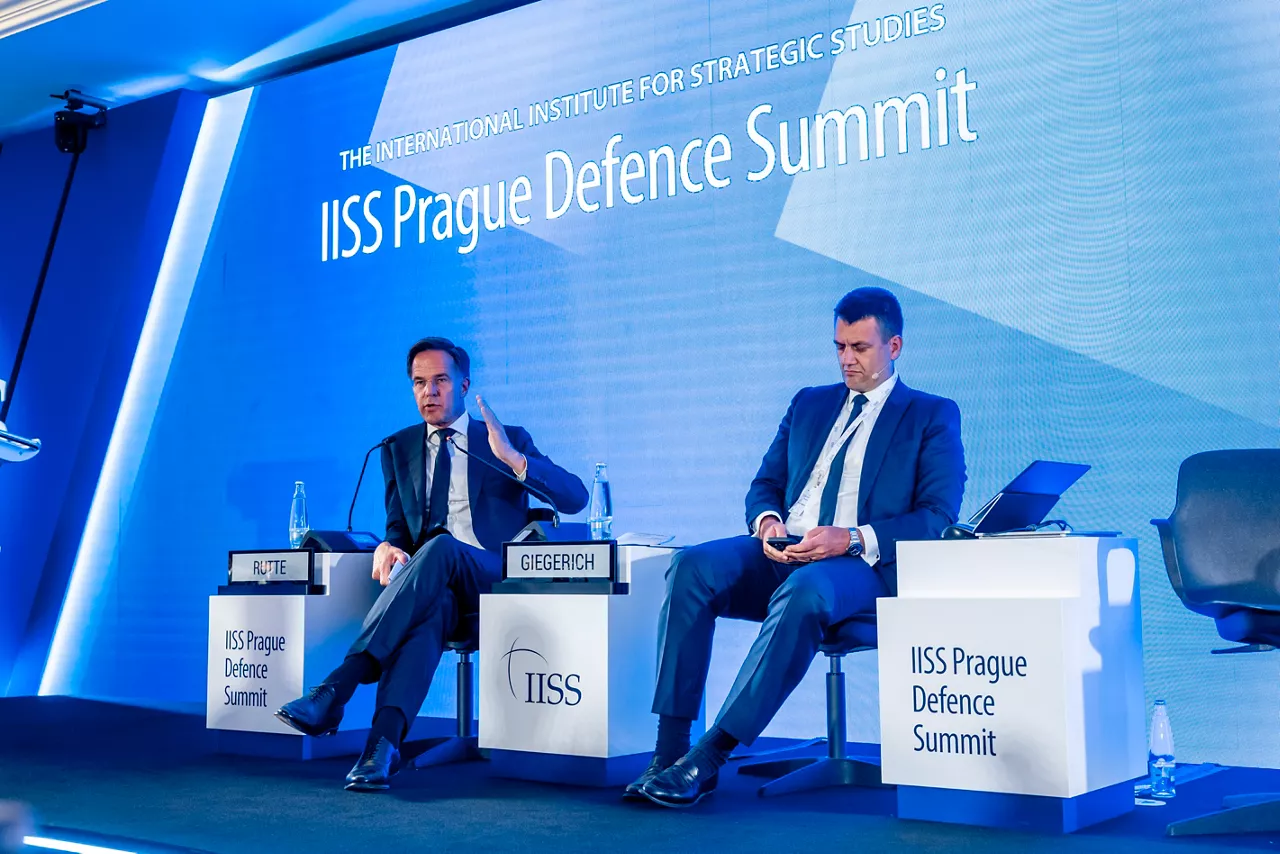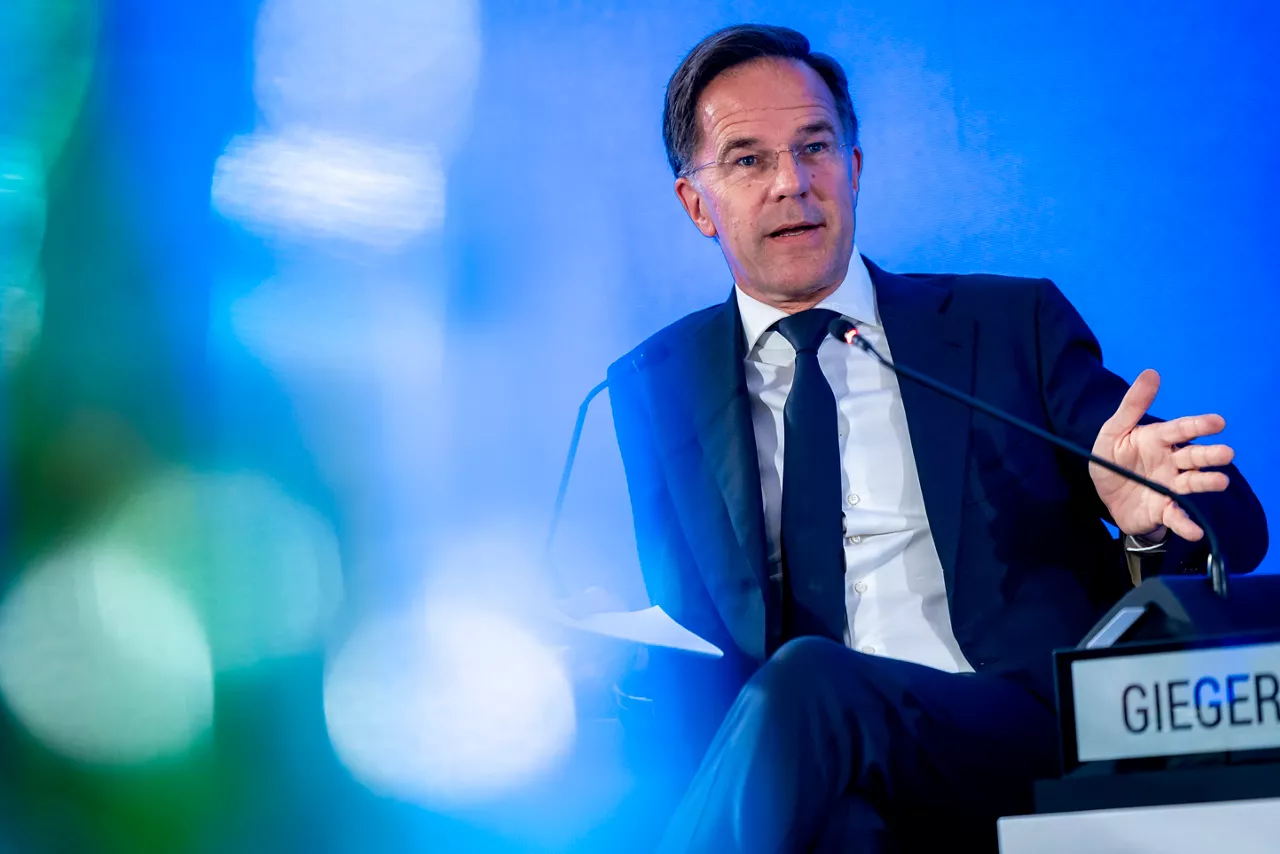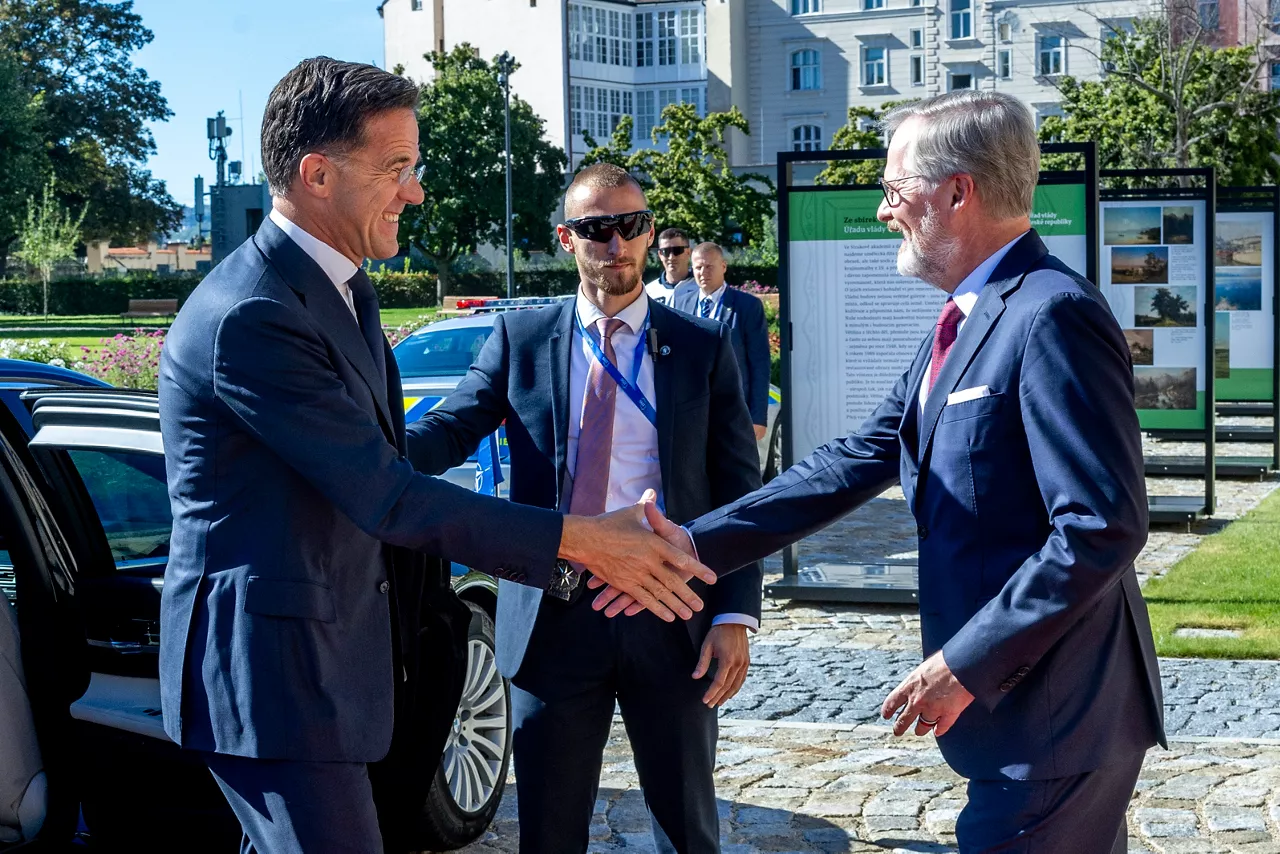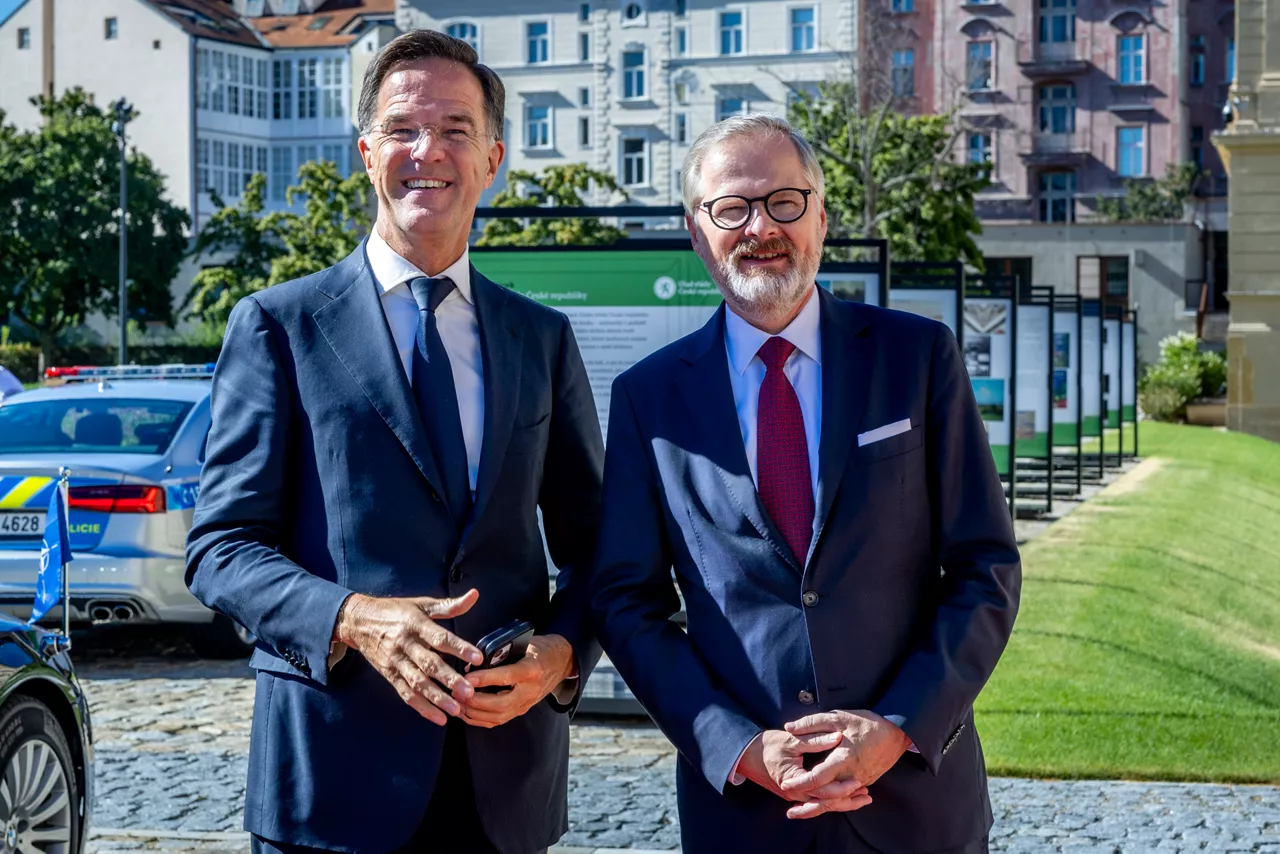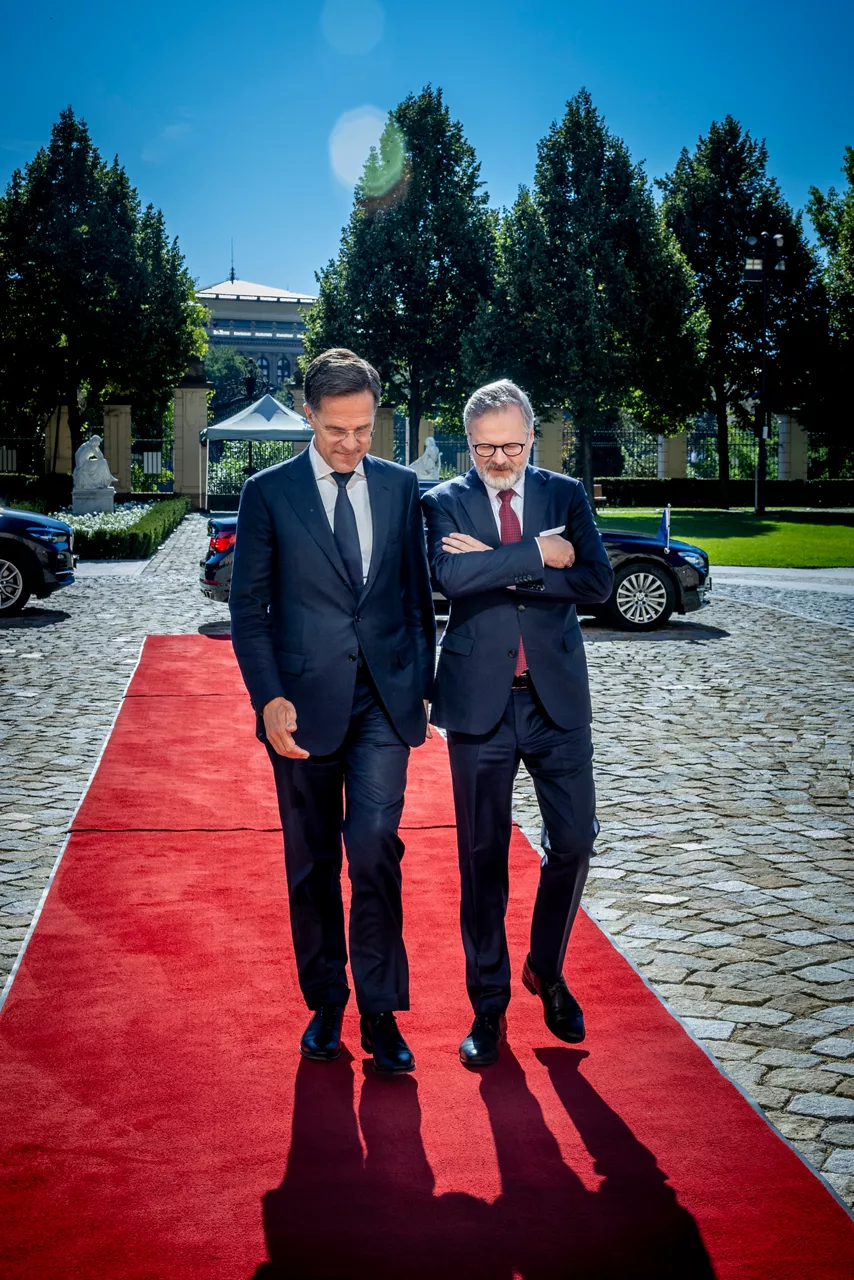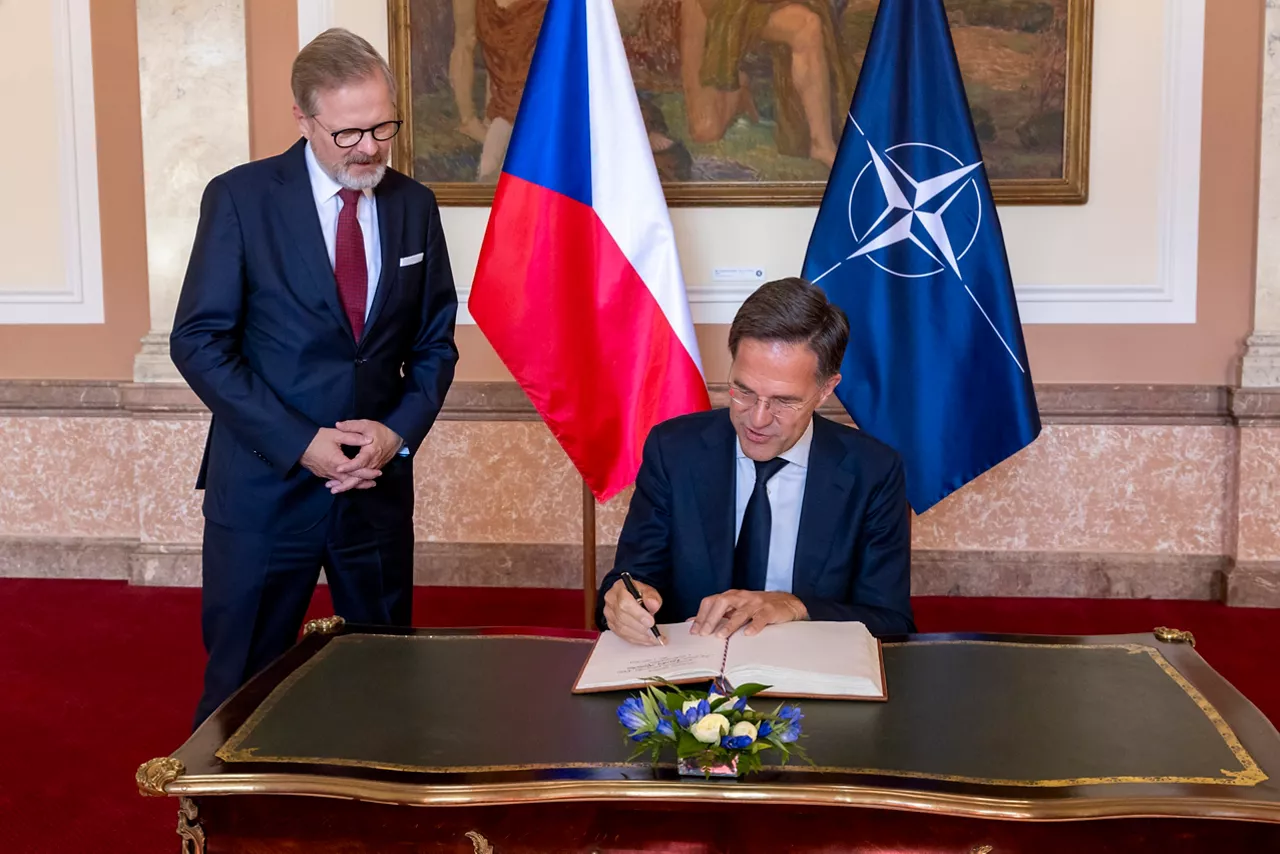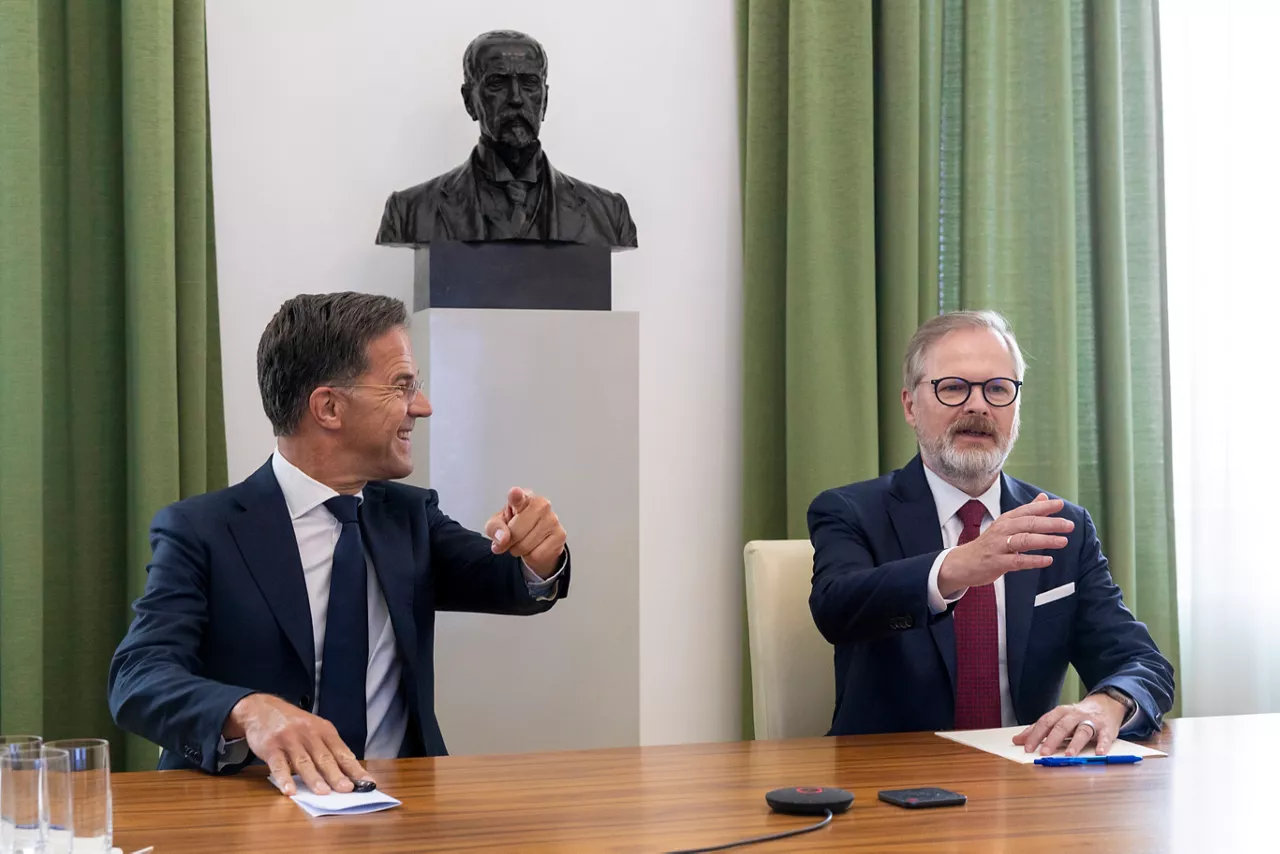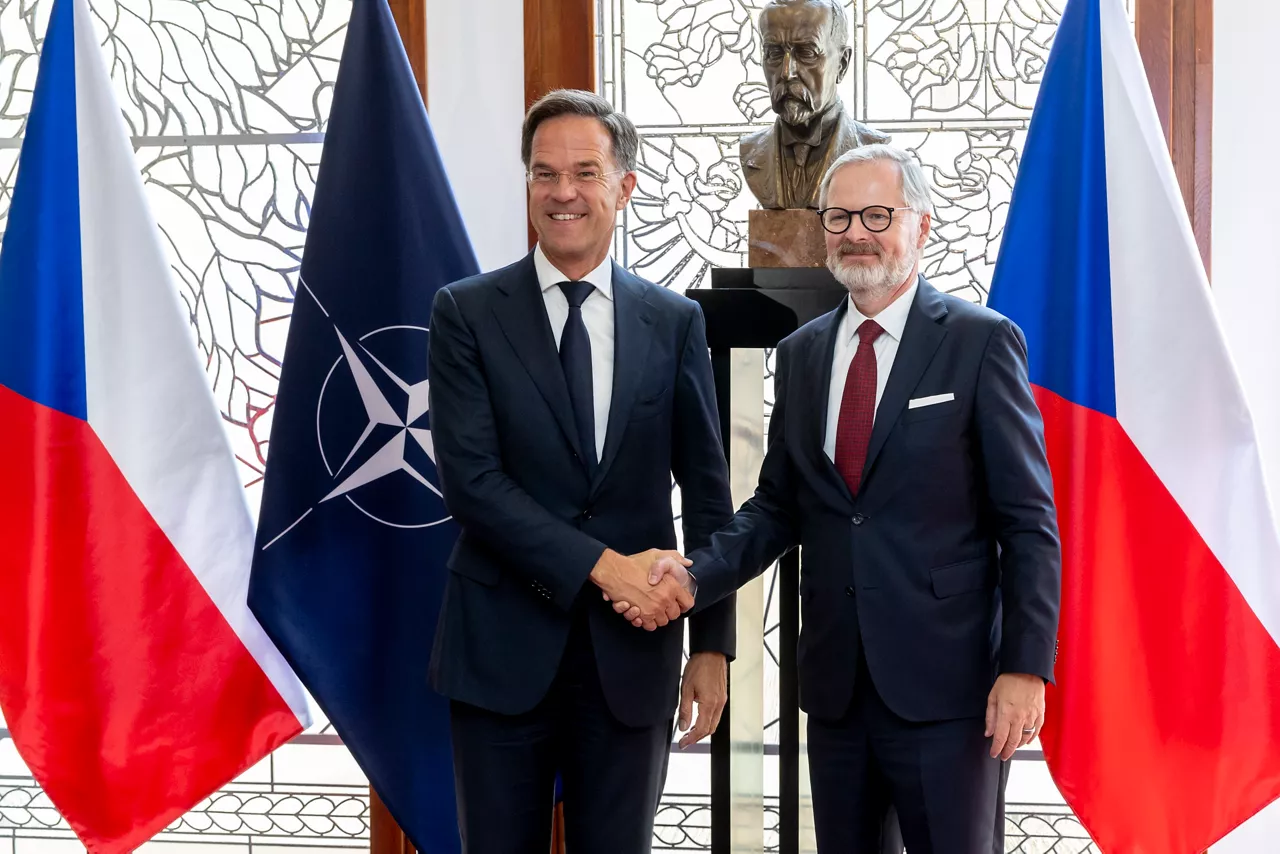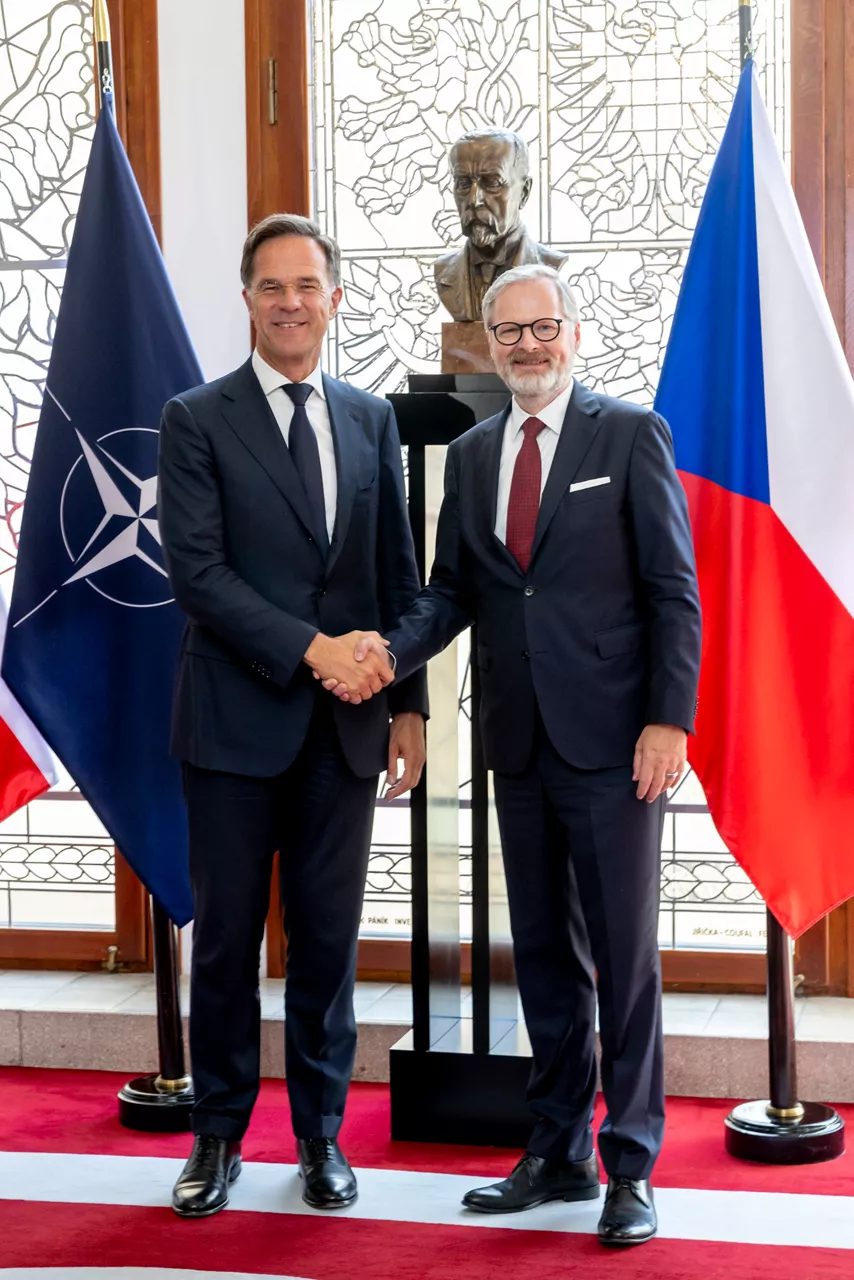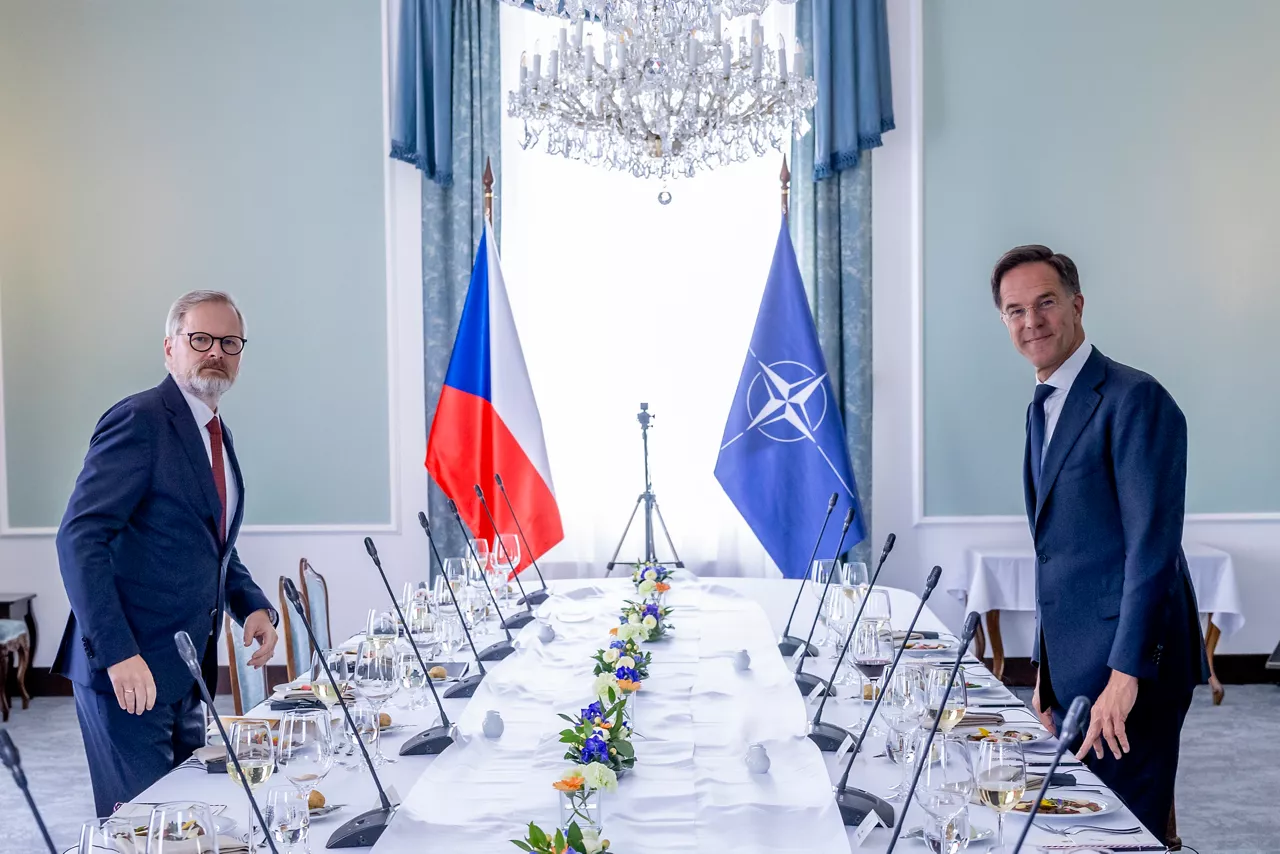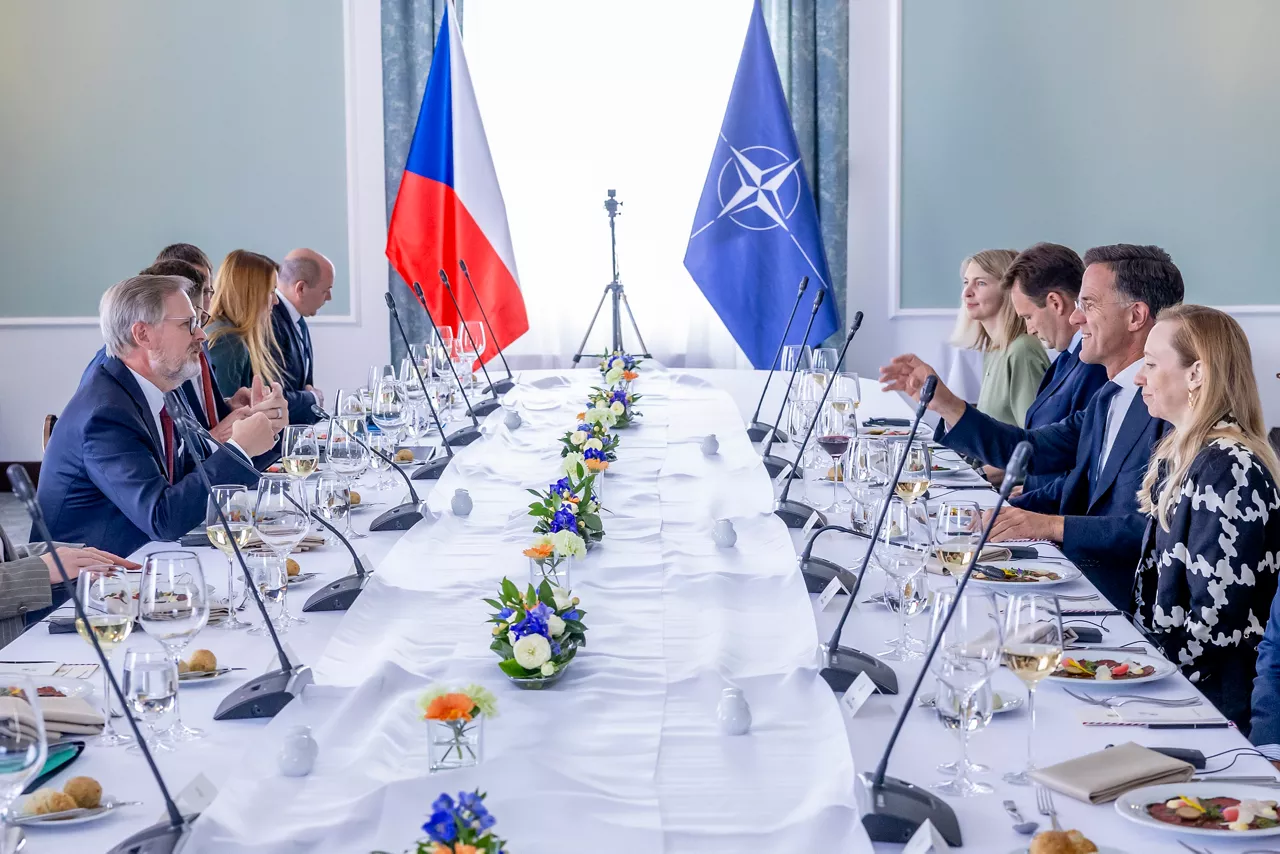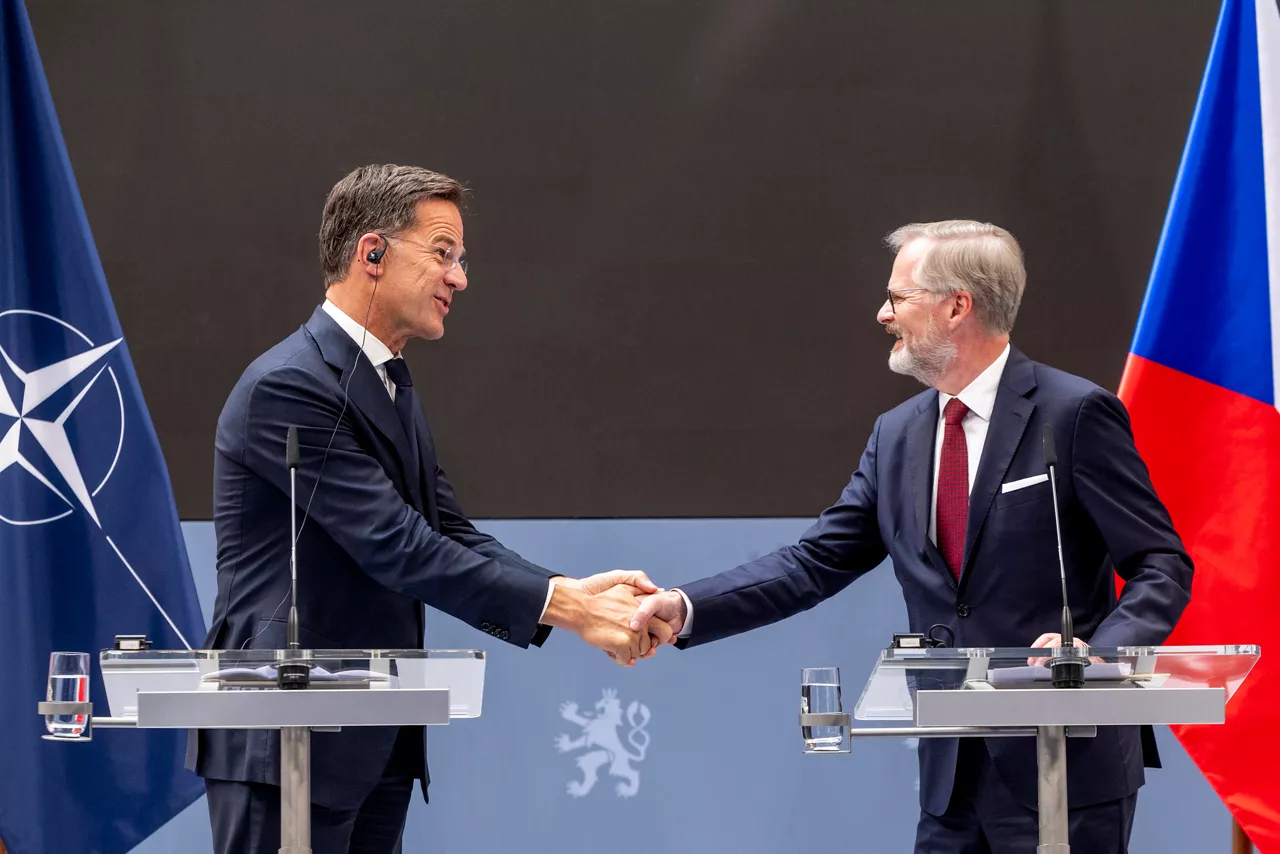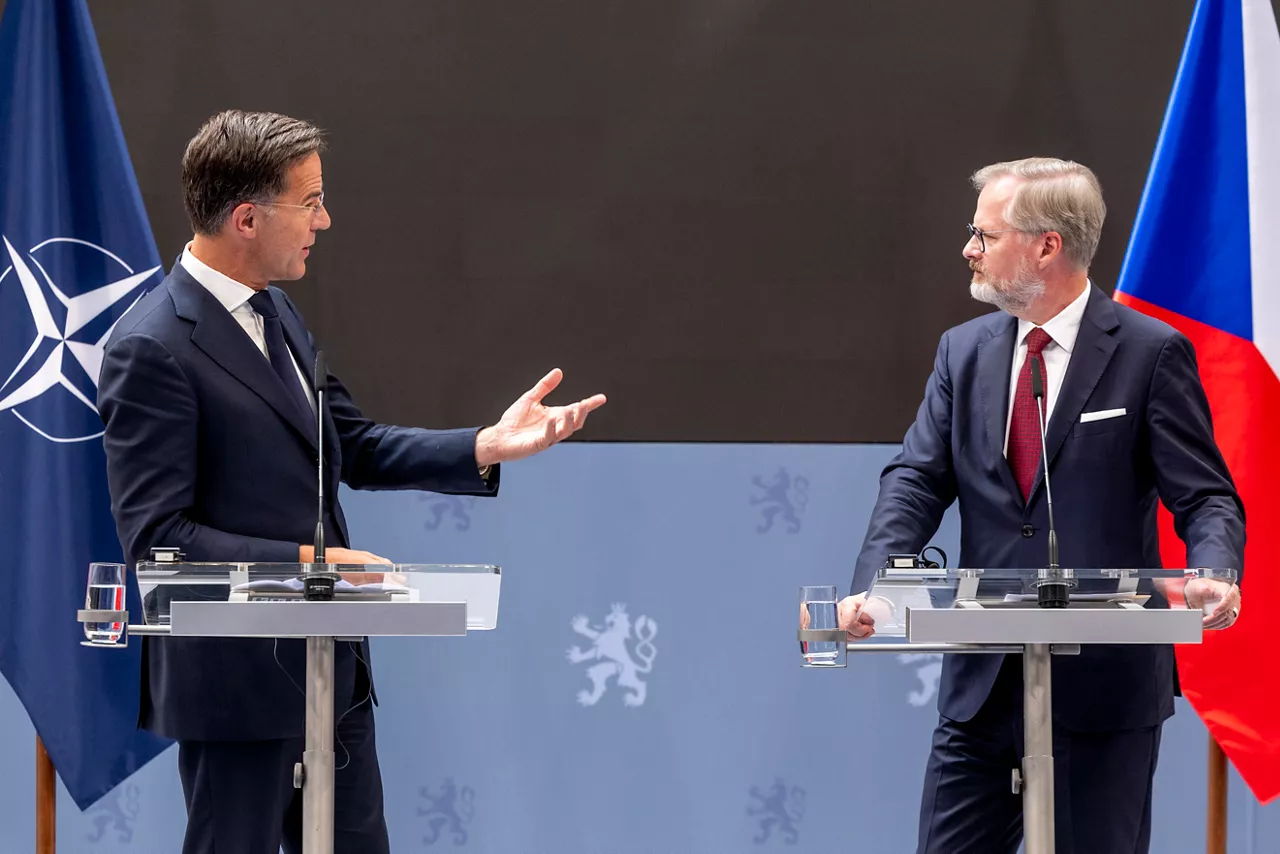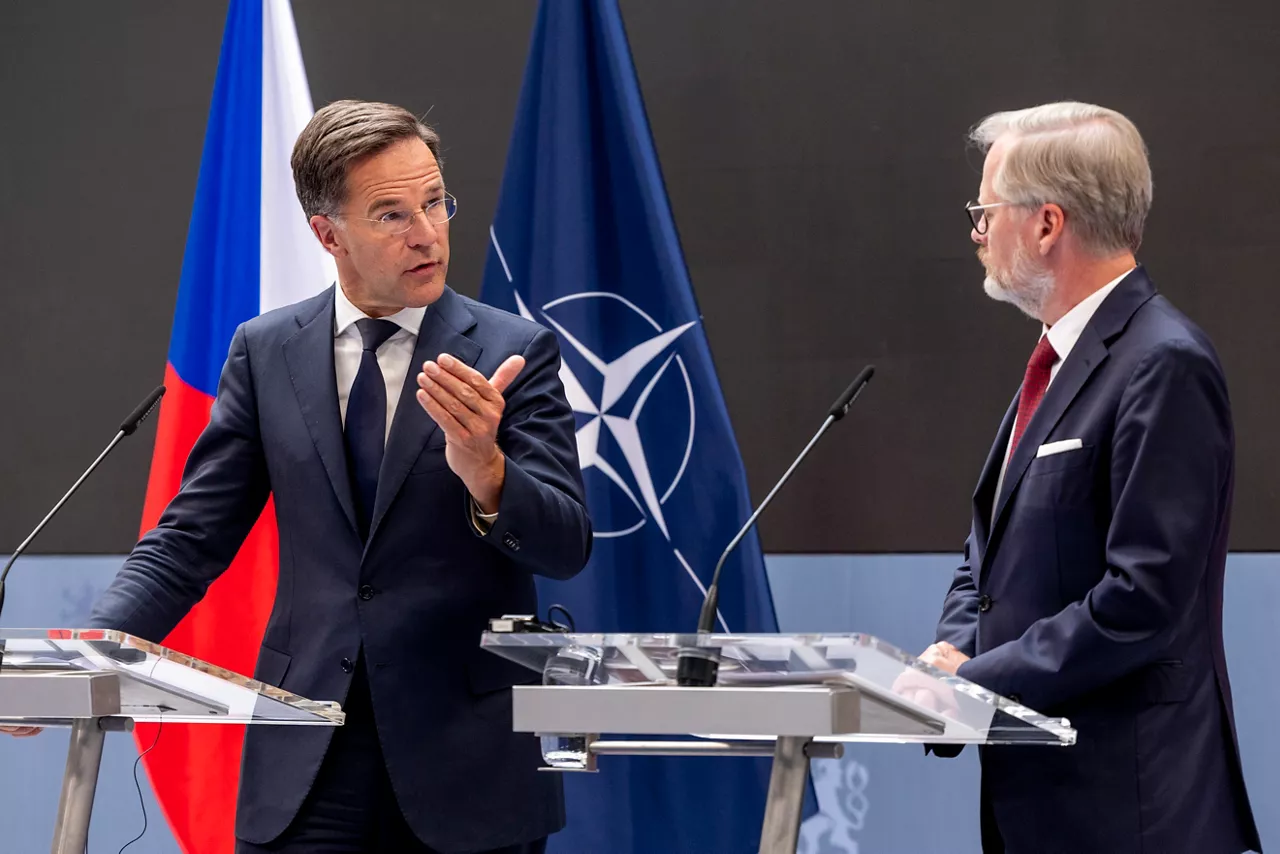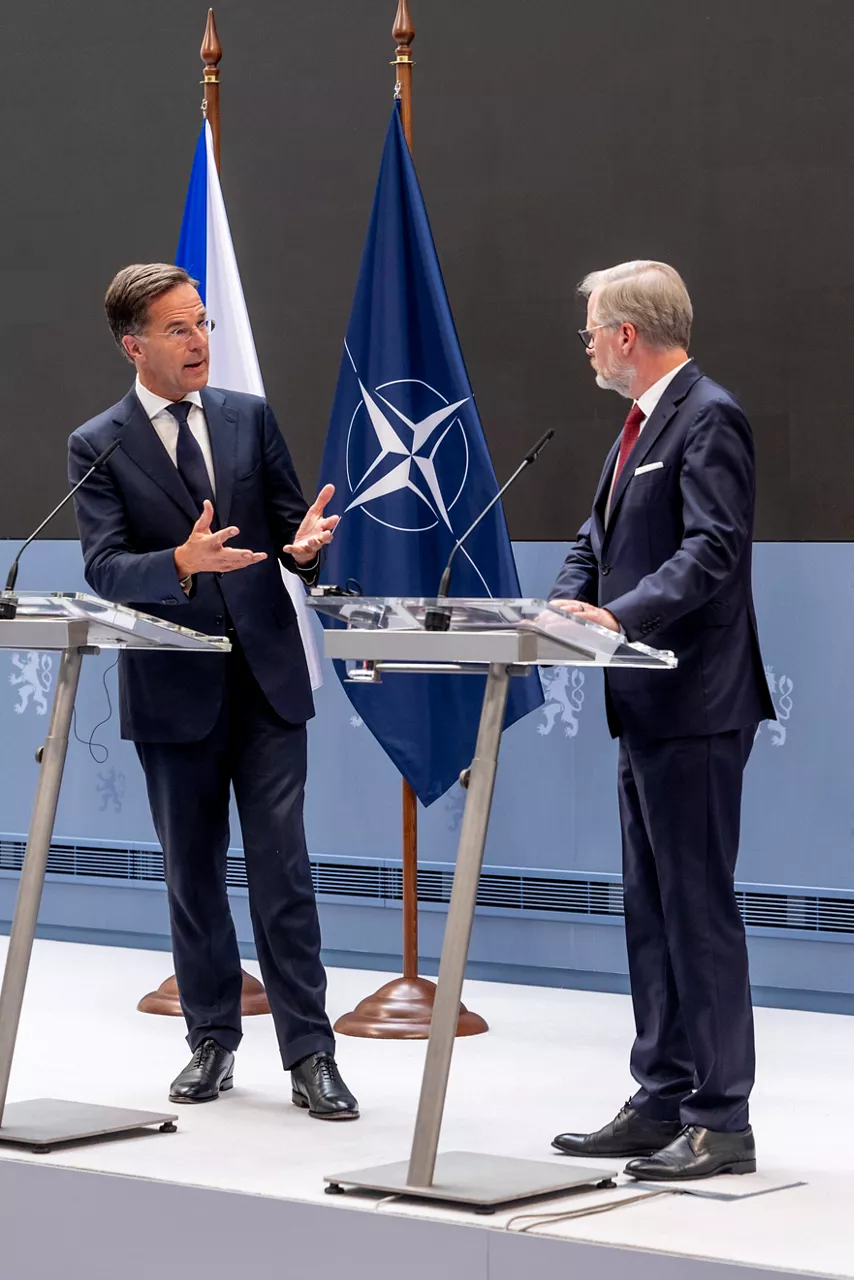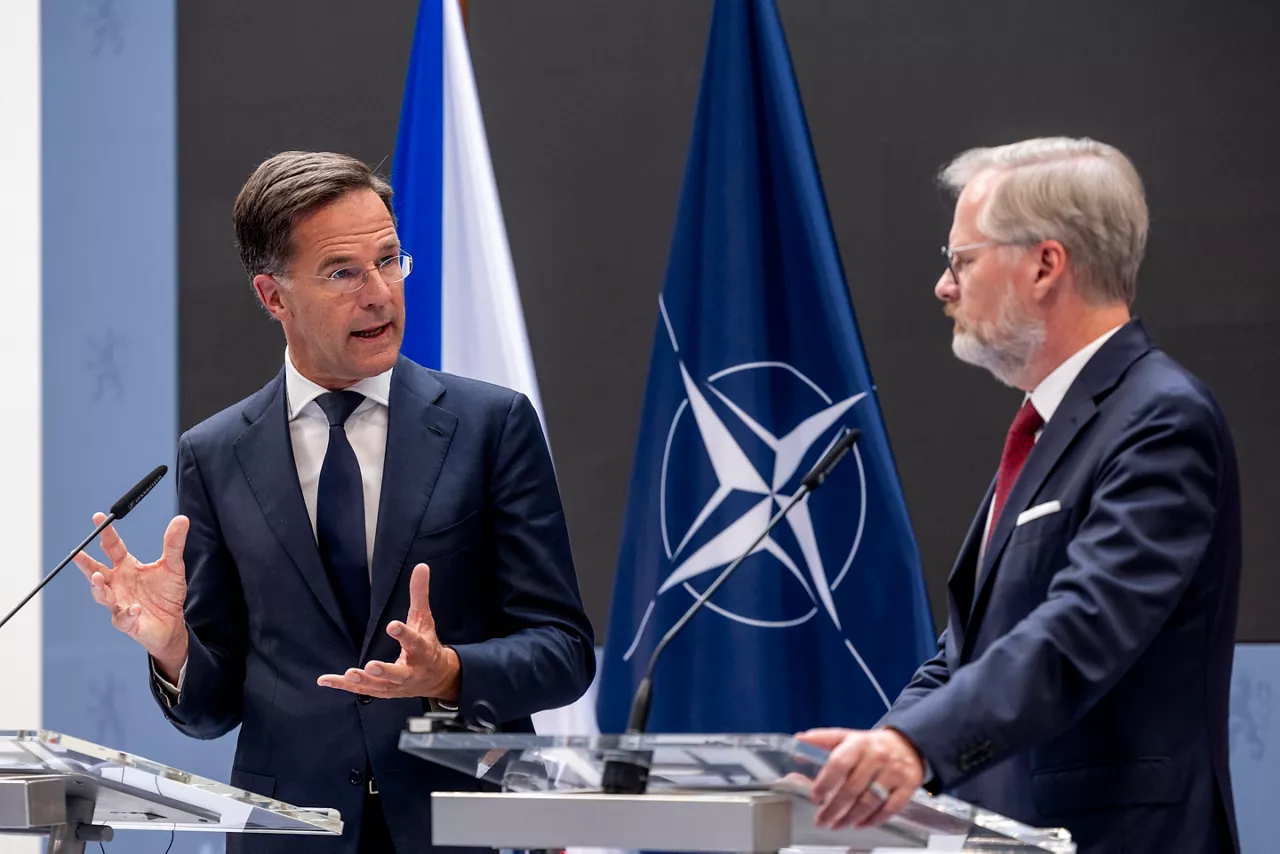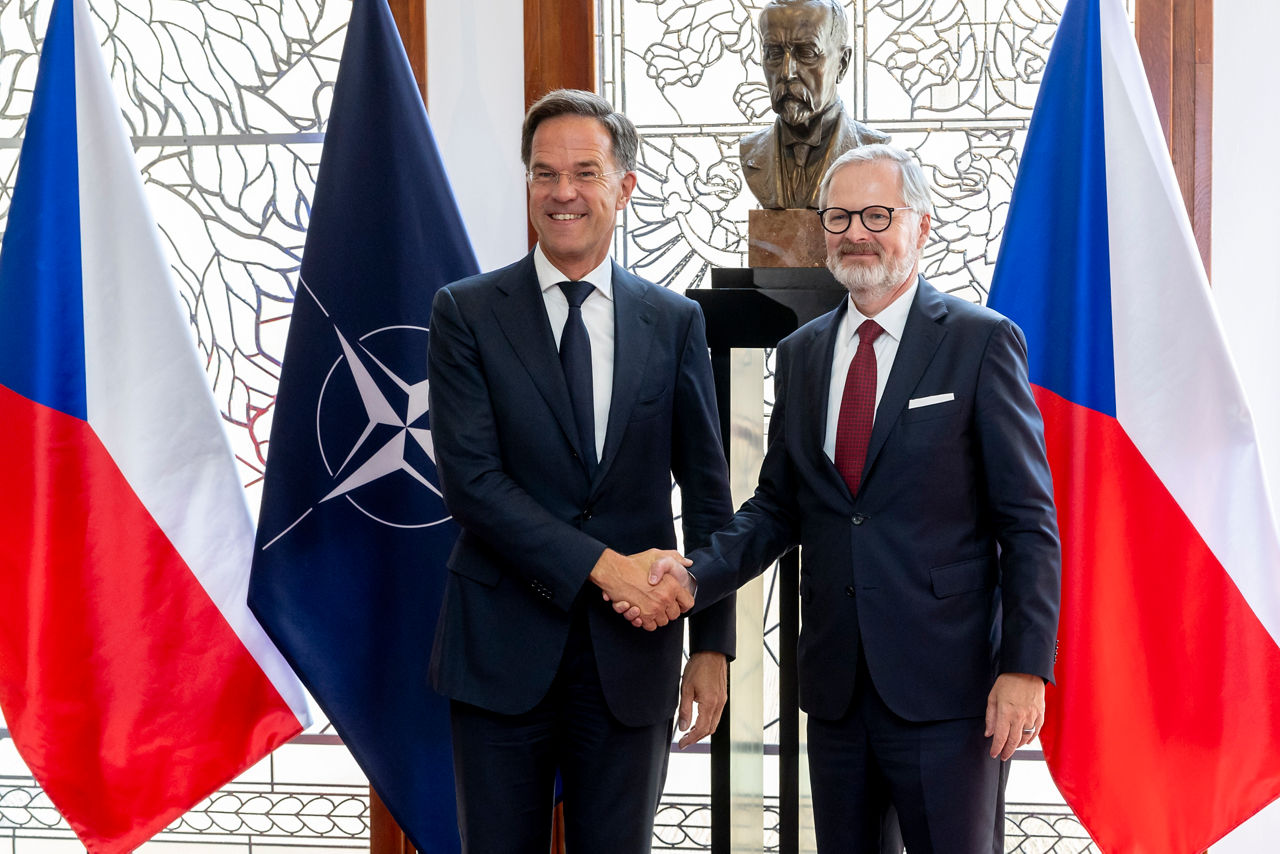Download NATO’s broadcast-quality video content free of charge

Log in
NATO MULTIMEDIA ACCOUNT
Access NATO’s broadcast-quality video content free of charge

Check your inbox and enter verification code
You have successfully created your account
From now on you can download videos from our website
Subscribe to our newsletter
If you would also like to subscribe to the newsletter and receive our latest updates, click on the button below.
Enter the email address you registered with and we will send you a code to reset your password.
Didn't receive a code? Send new Code
The password must be at least 12 characters long, no spaces, include upper/lowercase letters, numbers and symbols.
Your password has been updated
Click the button to return to the page you were on and log in with your new password.
(As delivered)
Thank you Dr Giegerich, dear Bastian.
Let me say, thank you all for being here. I see many faces I know so I cannot hug you personally at the moment but I would have loved to do that.
And it’s also good to be back in beautiful Prague.
It is a pleasure to have the opportunity to have this debate with you this morning.
IISS has a reputation when it comes to assessing military capabilities, you know that - “military balance” if you will.
So, it comes as no surprise that we are here today, and I’m here today, to talk about European military capabilities – and what we need to keep our continent safe. Now but also in the future.
And this is such a crucial topic – and you will not be surprised to hear me say that we need more than we currently have.
A lot more, I can tell you. Because we face serious and lasting threats.
Russia and China are investing heavily to build up and modernise their militaries.
Their defence industries are producing weapons and heavy military equipment at a remarkable, I might say at a staggering, rate.
And this is not just to show off at major military parades in Moscow, or like yesterday in Beijing.
But to aggressively exert influence, attempt to reshape the global order, and undermine our freedom and security. This is at stake.
Today, Russia allocates 40% of its budget on its war economy. 40%. So I’m not saying 14% no, 40%. Four zero.
And this year alone, it is expected to roll out at least 1,500 tanks, 3,000 armoured vehicles, and hundreds of Iskander missiles.
Yes, they are using this equipment against Ukraine.
And we are working to end this aggression as quickly as possible – and to secure a just and lasting peace.
But we should not be naïve.
This trend is not going to shift or reverse anytime soon.
Russia is – and for the foreseeable future will remain – a destabilising and confrontational force in Europe and the world.
And that’s why, when NATO leaders met in The Hague in June, our priorities were crystal clear:
Invest a lot more in defence.
And speed up our defence production.
And that’s exactly what we are doing.
Europe and North America together in NATO.
And we are, I can tell you, already making progress.
First on defence spending.
At the Summit, as you know, NATO Allies agreed to invest 5% of GDP in defence by 2035.
5% - and that’s a lot of money. But it is what we need.
This investment will fuel a substantial leap in our collective defence.
Of the 5%, at least 3.5% of GDP will be invested in core defence requirements.
To fund our militaries and the equipment they need - according to the traditional NATO definition of defence spending - something this crowd knows very well.
And 1.5% will go towards investments that support our defence and security like infrastructure, cybersecurity, and industry.
We know what we need.
At NATO, we have a clear and ambitious list of capability targets – and this 3,5% is anchored in those capability targets.
They outline what each Ally needs to provide to keep our one billion people safe.
The details of this list of course are classified, but to give you an idea:
We need to increase the number of air and missile defence systems five-fold.
We need thousands more armoured vehicles and tanks.
We need millions more artillery shells.
We need more drones.
And cyber and space capabilities.
So, we have the shopping list. But to buy, we need the cash.
And the good news is that there is already more cash on the table – and even more will flow.
European Allies are really stepping up, including Czechia, which has plans to increase its core defence spending to 3% by 2030.
So we need Allied governments and politicians across the spectrum, to make the tough choices and explain why it’s necessary to invest if we are to ensure the safety, the security, and the prosperity of our people.
But of course, cash alone can’t provide security. We need the capabilities. Real firepower, heavy metal, as well as new tech.
And that’s what our defence industry across the Alliance needs to deliver – faster than ever. In Europe and in also the United States. Simply all over the Alliance, we are not producing enough.
And this brings me to my second point - defence production.
Until recently, Russia was producing more ammunition than all NATO Allies, including the US, including Türkiye, the whole of NATO together.
Much faster than we possibly could. And their economy is not bigger than Texas. So can you imagine that Texas, the State of Texas, producing more ammunition than the whole of NATO? Including the US, including Türkiye, the whole of the EU, etc.
But having recognised the problem, I can tell you that on this issue we are already turning the tide on defence production, and particularly when it comes to ammunition.
If we look only at the countries of the European Union, their annual capacity to produce artillery ammunition will be six times that of just two years ago. Six times.
That’s two million rounds by the end of this year.
And again, that’s only Europe…
Czechia and its impressive defence industry contribute significantly, I can tell you, to this growth.
And as a result, we are gradually refilling our stocks and narrowing the production gap with Russia.
And this is my core message this morning. It’s essential – for our own security - and to keep supporting Ukraine, like Czechia does through its unique ammunition initiative. And again, I want to thank Czechia for doing this.
So we see very good trends, but there’s still a lot more to do, including to accelerate production of more complex capabilities like tanks, like missiles, and air defence systems.
But also, the kind of kit we see becoming an essential aspect of modern warfare – including drones.
We need to build on our experience in ramping up the production of artillery shells.
And we can certainly, by the way, learn here from Ukraine, and from Ukraine’s rapid industrial mobilisation…and, can I add, innovation.
Since February 2022, Ukraine has ramped up its yearly artillery systems production from nearly zero to well over 200 heavy artillery systems.
So, going from a single prototype to mass production in really record time!
Crucially, Ukraine is now also one of the world’s largest producers of autonomous systems, able to produce more than 4.5 million drones per year. And that’s truly stunning.
Imagine this across Europe and North America, and I believe that’s our direction of travel.
For the industry representatives in this room, there is massive opportunity.
The demand for capabilities is real and urgent, it is on the rise and it will continue!
We need all your help to further increase production lines, speed up innovation, and support development and production of the capabilities that Allies need – in Europe and in the US.
There’s also an added benefit for those who may not be industry executives or major investors.
When industry steps up supply, the result is not only more security but also more economic growth and many more jobs.
So, the defence dividend is real. We all stand to gain – from big industries and tech companies, to ordinary citizens.
Last week, in Unterlüß in Germany, I visited a new Rheinmetall plant and it is now creating 500 new jobs.
And that’s just one factory of many. And there will be many more on both sides of the Atlantic.
And I believe that this is a good news story, but I know that some may not see it that way.
Some may worry about a new arms race. But our own aim, I can tell you, is not to provoke, our aim is to protect and to ensure that we can continue to enjoy the freedom and security that we all hold so dear.
The freedom and security that NATO was founded to preserve.
We should not forget: our need to increase defence investment and production is in response to the threats we face.
Russia’s unprovoked war against Ukraine is the most obvious example of that threat. But the threat will not end when this war does, nor is the challenge limited to Russia.
China, Iran, and North Korea pose challenges individually and as a result of their cooperation.
Only look at the pictures from Beijing the last couple of days and the hand-hold. They are increasing their defence industrial collaboration to unprecedented levels.
They are preparing for long-term confrontation, and as I said earlier, the challenges we face are lasting, so, we must be prepared.
Of course, we have a real advantage in our unity and in the NATO Alliance.
This is not Europe alone, but Europe and North America together. All 32 of us united in our commitment to collective defence.
And united in our plans for how to deter and defend.
Day after day, year after year.
And what’s more, it’s not only NATO, but NATO with our partners – the EU, Ukraine and countries around the world. Not least in the Indo-Pacific – Australia, Japan, New Zealand and the Republic of Korea.
So, it is a team effort.
Together, we have what it takes to prevail. We have world-class industries, we have innovative minds.
And we have the freedom that allows innovation to thrive.
Our capabilities are unsurpassed and it is up to us to ensure they stay that way.
Our future is therefore in our hands.
We are combining our forces and leveraging our respective advantages.
And that’s how we will out-produce and out-smart our competitors.
That’s how we stay stronger, produce faster and innovate better.
And that’s how we win the competition and preserve peace through strength.
Thank you.
Dr Bastian Giegerich, Director-General and Chief Executive of The International Institute for Strategic Studies (IISS) - We now have 15 minutes for Q&A, so I will take perhaps two questions at a time, if that is okay? And then we'll keep going. People are already queueing up so first one please, Tom Waldron.
Tom Waldron - Thank you. So Allies have capability targets, should NATO also have defence industrial targets?
Dr Bastian Giegerich, Director-General and Chief Executive of The International Institute for Strategic Studies (IISS) - That's admirably crisp. So do we need NATO defence industrial targets? Next please - Matthias Gebauer from Der Spiegel,
Matthias Gebauer, Der Spiegel - Hi, good morning, Mr Secretary. I have a question concerning the meeting…
NATO Secretary General, Mark Rutte – Where are you?
Dr Bastian Giegerich, Director-General and Chief Executive of The International Institute for Strategic Studies (IISS) - He’s there.
NATO Secretary General, Mark Rutte – Ah, very good, yes.
Matthias Gebauer, Der Spiegel - I have a question concerning the meeting on Ukraine security guarantees this afternoon. I'm wondering why you pointed out several times that it's really important now to also announce specific details about this possible security force. Can you elaborate a little bit why you highlight this importance, even though Russia is clearly saying that they won't accept any NATO troops in Ukraine anytime soon?
NATO Secretary General, Mark Rutte –Yes, but why are we interested in what Russia thinks about troops in Ukraine? It's a sovereign country, it's not for them to decide. I'm really amazed. I'm not criticising you, but I hear this question, of course, more often, so thank you for asking the question. But I'm really amazed. It's - Russia has nothing to do with this. It's the same like Finland then - should have had a sort of nod - a yes from Russia to join NATO? No, of course not. And Sweden? No. In the past, the fact that we founded NATO, we are sovereign nations. Ukraine is a sovereign nation. If Ukraine wants to have security guarantee forces in Ukraine to support the peace deal, it's up to them. Nobody else can decide about it. And I think we really have to stop making Putin too powerful. He is, he is the governor of Texas, not more, so let's not take him too serious. And then on your, on your first question about capability targets, I agree. So, so we have the capability targets, and basically flowing from there, of course, we know exactly what we need in terms of the defence industrial output. And I'm really at stress to again make that point. Sometimes people think we do the 3.5% core defence spending for an audience of one. No, it is a coincidence that by spending 3.5% we equalise what the Europeans and Canadians are spending and the US are spending, which is crucial, because we had to end that debate, which started with Eisenhower basically saying that the US was paying more than the Europeans. And the US was totally right and rightly irritated and expecting the Europeans and Canada to step up. That's now happening. But the 3.5% is not - yes, it is a coincidence that it equalises with the US - but it is exactly the ballpark figure that you need to get to deliver the capability targets and absolutely to the question you need the defence industrial output. So, I can tell you my country, the Netherlands, knows exactly - I know from the Czechs and other countries, they know exactly what gear to buy to make sure that not only the people are there, but also they have the equipment to deliver their support to the overall endeavour - if the phone call would come that Article Five is triggered, so that's
absolutely clear.
Dr Bastian Giegerich, Director-General and Chief Executive of The International Institute for Strategic Studies (IISS) - Thank you very much. I'll take another group of two and Secretary General, we have a few delegates here from NATO's Asia Pacific, Indo-Pacific partners.
NATO Secretary General, Mark Rutte – Very crucial.
Dr Bastian Giegerich, Director-General and Chief Executive of The International Institute for Strategic Studies (IISS) - So we'll take a question from Chung Min Lee from Korea. Chung Min, the mic is live.
Chung Min Lee, Senior Fellow, Carnegie Endowment for Int'l Peace - Thank you Mr Secretary General, it's a real honour. I saw you last when you were prime minister in Seoul.
NATO Secretary General, Mark Rutte – Good to see you again.
Chung Min Lee, Senior Fellow, Carnegie Endowment for Int'l Peace - My question to you sir is this. As you know, South Korea played a key role in supporting Polish re-armament because of the Ukrainian conflict. But this must be a two-way street. South Korea and Japan must buy arms also from our NATO partners. So from your position, what can the IP4 countries do to make sure that we are able to fill the gap with our European partners, but to also entice European companies to make sure that the gap that we face vis-à-vis the PRC and North Korea is also being filled with the help of our European industrial friends?
Dr Bastian Giegerich, Director-General and Chief Executive of The International Institute for Strategic Studies (IISS) - Thank you very much. Let me, let me take, let me take one more, and I'll try and pick one that might hopefully align with this from Australia. Latika Bourke your mic is live.
Latika Bourke [reporter] - Thank you. Thanks Bastian, Secretary General, you said in your speech – over here, Secretary General.
NATO Secretary General, Mark Rutte – Hi, good morning.
Latika Bourke [reporter] - Thank you. Good morning. You said in your speech that the threat from Russia will not end when the war ends, then you said that China is ‘preparing for long term confrontation’ - looking at the pictures this week - and that ‘we must be prepared, it's a team effort’. But what does that team effort look like? Is it going beyond defence industrial collaboration, or are we talking about a combat role here?
NATO Secretary General, Mark Rutte – I don't think we will extend Article Five to the Indo Pacific. I don't think that will happen. But what you see increasingly happening is that the cooperation between NATO and the four countries in the Indo Pacific - Japan, New Zealand, Australia and the Republic of Korea, is getting stronger and stronger. And why? Because these theatres are connected. When I am discussing this with the senior policymakers in the US, there is increasingly a realisation that if China would one day decide to attack Taiwan, it will not be limited to that attack. Why would not first Xi Jinping call his junior partner in all of this, one, Vladimir Putin, to also keep us busy here in Europe, in the north, in the northern Atlantic area? And the US is absolutely convinced that for their long-term security, a secure Europe, a secure Arctic, but also a secure Atlantic, is crucial. So, this is all getting interconnected, and that is why we need that cooperation so closely. And that's why the American President, when I visited him in March, said, ‘Mark, you have to make sure that the Indo Pacific Four are present at the NATO Summit in The Hague’. And I was so happy that they were and that we were able to continue that conversation. I visited Japan in April. We are, I’m closely in contact with all the senior leaders in the Republic of Korea and, of course, New Zealand and Australia. And to the question about defence production, the Republic of Korea is getting into the NATO markets. Why? Because NATO industries, until recently, were not producing enough. When it comes to ammunition, we are closing the gap, but on many other systems, we are not. And I'm asking industry in US and in Europe, why do you, why do you accept it? This is a free market. So, if Poland is now buying for tens of billions Korean equipment, and they are totally entitled to do so. And why? Because it is good and it delivers fast at NATO standards. But on the other hand, if I was Raytheon or Lockheed Martin or Rheinmetall or Leonardo, I would think, hey, that is strange. And why is this happening? So to your question, I want to thank you for the fact that you are filling the gaps at this moment in NATO, because we are not producing fast enough. And by the way, when it comes to ship building and our navy, and particularly the US Navy, I'm really worried because this China has now more ships sailing than the US, and ship building in the US is not at a rate that they can anywhere catch up on what China is doing at the moment. And also, the European ship building market is there, it's developed, and we have seen the com- the new deals between the UK and Norway. But we need much more if we collectively want to fill that gap. So, thank you to Korea, of course, it would be great if we can also deliver some stuff to you and to Japan and others. I mean, I am a centre-right free market politician. I love free trade and earning money and getting some peace dividends from this. But at this moment, it is the other way around. You are filling the gaps in Europe and in North America.
Dr Bastian Giegerich, Director-General and Chief Executive of The International Institute for Strategic Studies (IISS) - Thank you very much. Let's take two more we have from the UK, Charlie Edwards.
Charlie Edwards - Thank you, Bastian. Secretary General, you, your predecessors, have said that hybrid attacks, or attacks in the so-called grey zone, could, in theory, trigger Article Five. But isn't it increasingly obvious to the Kremlin that the Alliance has no intention of invoking Article Five over incidents involving fires at DHL warehouses and logistics hubs, subsea cables being cut, or cyber-attacks on European critical infrastructure?
Dr Bastian Giegerich, Director-General and Chief Executive of The International Institute for Strategic Studies (IISS) - Thank you, thank you very much, Charlie. We'll take one more from the US, Daniel Michaels, also from the Wall Street Journal. Daniel.
Daniel Michaels, Wall Street Journal - Thank you very much, Mr Secretary General. You've been - over here - on the far side.
NATO Secretary General Mark Rutte - Ah yes, hi. You put the journalists far away.
Dr Bastian Giegerich, Director-General and Chief Executive of The International Institute for Strategic Studies (IISS) - We'll put some light on.
Daniel Michaels, Wall Street Journal - You've been very positive on the role of President Trump in NATO and in general. But when you look at the war in Ukraine and pressure on Russia, it doesn't seem to have increased. President Trump seems repeatedly to give two-week deadlines that get extended to other two-week deadlines. Are you getting at all frustrated with this? Are you in a position to say anything about what you think President Trump is doing or will do to – as you talked about – put pressure on President Putin to end the war in Ukraine? Thank you.
NATO Secretary General Mark Rutte -
Let me give you three examples why I think President Trump is exactly doing the right stuff. First of all, do you really think, if he would not have been elected President of the United States, that Italy and Canada and Spain and Slovenia and Belgium and Luxembourg would have committed to do 2% this year? Do you really think that the whole of NATO would have committed to 5% committing to 5%, including 3.5% core defence spending at the NATO Summit in the Hague? That therefore, I think this is one of his biggest foreign policy successes. That therefore the NATO Alliance is having finally dealt with this enormous pebble in the shoe, this enormous irritant that Europeans and Canada were basically lecturing the Americas, but not spending the money they had to spend. And now finally, we are doing it, so that we are equal. Because we need to, to defend ourselves, not only because we had to do this. This would never have happened without Trump, I'm absolutely convinced. When he became president, second reason, he immediately started to recognise the big threat of the Houthis, and he was willing to take clear action in March. Why didn't the Europeans do this? Because we couldn't. I feel really at loss about this. I remember the call I got that this would happen, and I said, ‘Well, great that you to do this, you guys’ but why are the Europeans not taking care of their own backyard? Because we can't, because we don't have the military capabilities to do that. Now, with the 3.5-5%, we can in the future, and we should. It is our backyard. It's not the US who should take care of the Houthis. It should have been the Europeans doing that. It's crazy that we leave it to them, but we can't. And I'm so happy he did. And then finally, on Russia, he broke the deadlock. I mean, starting that conversation with Putin was important and crucial. He did. He took that leadership role. And this is not easy to solve this, but he is absolutely committed to doing that. And we are now working on these security guarantees necessary to make sure that also Zelenskyy knows that if he starts into conversations with the Russians, hopefully soon, that he has the backup and that he knows that that the security guarantees were in place so that Russia, after a peace deal, will never ever again to try to invade Ukraine. So, no repeat of Budapest and no repeat of the Minsk Agreement. So real security guarantees. Again, President Trump doing this. So yes, I am positive about what he is doing - and his administration doing, sorry. But I think it’s crucial. I mean, reinventing NATO, getting the talks going with Putin, dealing with stuff the Europeans should have dealt with here in this neighbourhood. I mean, I think three examples of clear leadership, and I'm not sure what would have happened if he was not elected. I don't think that was this would have been done, and we never have discussed 5%.
To the other question. I mean, rightly, NATO is always very not talking about when Article Five is yes or no triggered. It's there. I can assure you that anyone listening in from China or Russia or other people who wish as well, who think that we are not clear on this, our reaction will be devastating, based on the whole thinking behind Article Five. And when it comes to hybrid, we are not naive. Hybrid is a cuddly word. It sounds nice, but it means assassination attacks, jamming of planes, attacks on the National Health Service in the United Kingdom, and many other examples. And that's exactly why NATO Allies are extremely motivated and working day in day out to counter this. And the Russians know that, and the Russians also know that when it comes to cutting undersea sea cables, because their merchant ships have not sufficiently been trained, and this is why they constantly have to cut undersea sea cables, because they don't know how the anchor can be taken up. So, we will send some trainers to Russia to help them with this. But, of course, you might also assume it was done intently, and that's why we have, within 10 days, Chris Cavoli, the previous Supreme Allied Commander, was able to get Baltic Sentry going after the latest incident between Estonia and Sweden on the 25th of December. In 10 days. So, we are stepping up. The Russians noticed. They hate it, and I love that. So that's good.
Dr Bastian Giegerich, Director-General and Chief Executive of The International Institute for Strategic Studies (IISS) - Excellent. Secretary General, you have a packed agenda today, so I'd like to thank you again for joining us today and giving us such a clear and energetic account of where we are and where we need to go. I think that is hugely helpful. So, the Secretary General has to move on to other appointments. So, before I invite you to thank him, can I just ask you to stay seated while the Secretary General exits?
NATO Secretary General Mark Rutte - You can still thank me.
Dr Bastian Giegerich, Director-General and Chief Executive of The International Institute for Strategic Studies (IISS) - You can still thank him, yes, while being seated, though. Thank you so much, Secretary General, amazing. Thank you.

